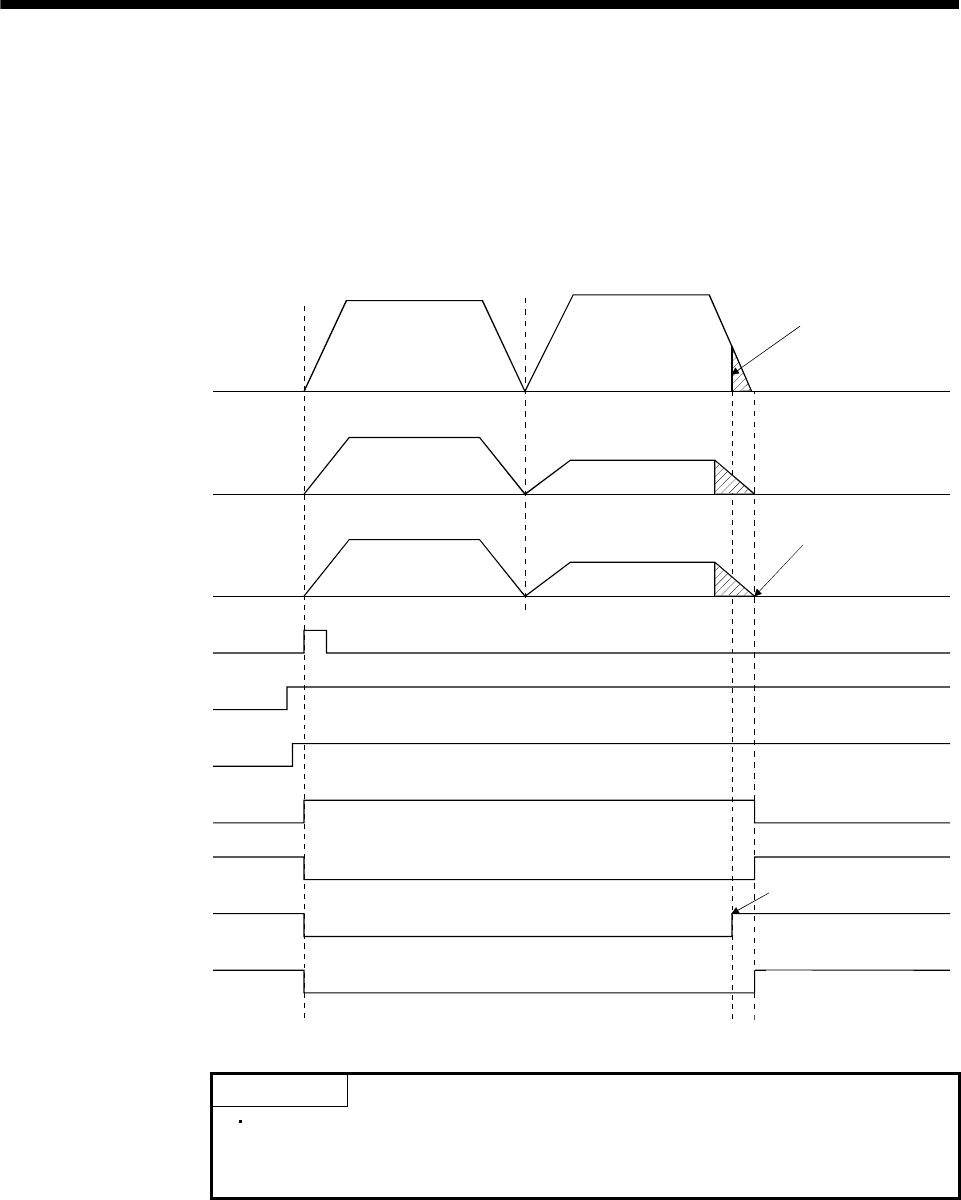
8 - 28
8. TANDEM DRIVE
The in-position signal (INP) is output for each axis separately; therefore, when the axes have come to a
stop and in-position signals are being used, check the in-position signal for both the master axis and the
slave axis.
For other types of movement, normal axis movement is followed. (Refer to Section 5.4)
The following shows an example where start operation is performed for the linear interpolation group 1 from
the configuration example on the previous page.
ON
OFF
ON
OFF
ON
OFF
YA1 axis (master axis)
ON
OFF
ON
OFF
ON
OFF
ON
OFF
Stops after moving to the
end point.
Speed
Rough match output limits
(parameter No.0230, 0231)
Start of operation
Turns on when all axes in
the linear interpolation group
configuration move to within
rough match limits.
XA axis
YA2 axis (slave axis)
Start operation
(XA axis)
Linear interpolation
mode (LIP)
(XA, YA1 axis)
In linear interpolation
mode (LIPO)
(XA, YA1 axis)
During operation (OP)
(XA, YA1 axis)
Positioning complete
(PF)
(XA, YA1 axis)
Rough match (CPO)
(XA, YA1 axis)
During smoothing of
stopping (SMZ)
(XA, YA1 axis)
POINT
For Linear interpolation operation, the XA axis and YA1 axis (master axis) are
used for linear interpolation operation.
The YA2 axis (slave axis) moves synchronously with the master axis.
(2) Non-synchronous micro-adjustment mode
Linear interpolation operation cannot be entered while in non-synchronous micro-adjustment mode. The
while in tandem drive non-synchronous mode (operation alarm 51, detail 01) occurs upon start of operation.


















